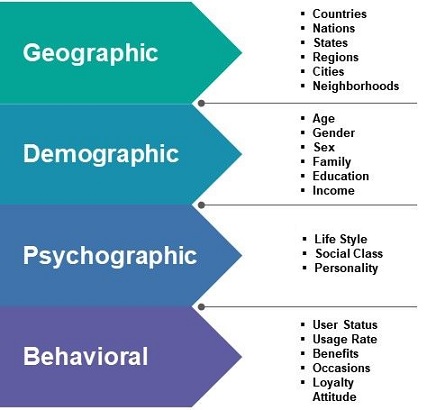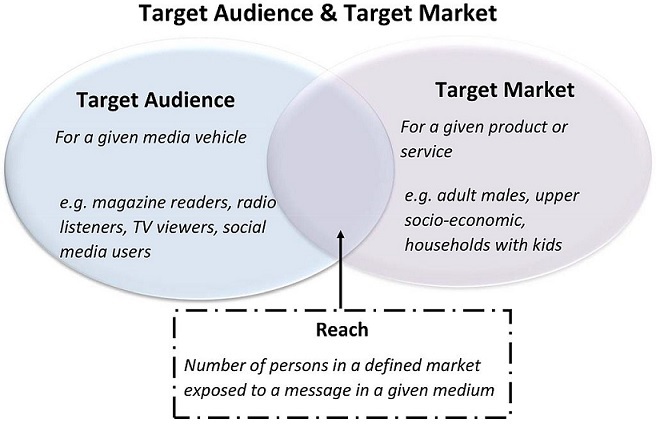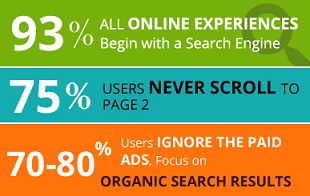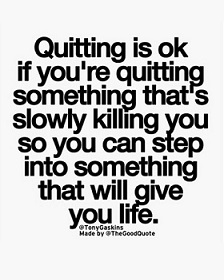The idea of starting your own venture is pretty exciting. The thought of being the master of your own attracts a lot of people to the world of online business.
Moreover, the online market is huge as 64% of Americans prefer to purchase things from online stores. Studies say that, by 2040, 95% of the shopping will be done online which is a very good percentage.
It is probably the biggest reason why most millennials are interested in setting up their own business. They are using the internet and clubbing it with their creativity to build their own empires. This trend of selling services and products online is here to stay.
 You have to get started with the aim of catering to the needs of consumers and go on to build a trustworthy image. However, the success mantra is more elaborate.
You have to get started with the aim of catering to the needs of consumers and go on to build a trustworthy image. However, the success mantra is more elaborate.
You have to chalk out things beforehand. This ensures that you are well prepared for most of the stuff that comes your way.
The process of setting up an online business may not be an uphill task, but it is a known fact that businesses do fail over a period of time. This can happen due to various reasons including poor planning or high-profit expectations.
There are certain things you need to do before spending money on online business. And here they are,
Table of Contents
Things to do Before Spending Money on Online Business
1. Find Your Niche and Research Your Competitors
The first and foremost step you need to take is finding a niche that resonates well with you. A niche is a topic that a group of people are interested in. For example – health, finance, technology, online marketing, etc.
In a layman’s language, a niche is a category with common products and services. Now, before choosing a niche, it is essential that it has a good monthly search volume but less competition. Because, if you choose something that is rarely searched by people, you will go nowhere. No web traffic, no conversions, and no revenue.
To brief, a search volume defines how many people search a particular keyword (or something) monthly or annually worldwide.
While competitors are those who are running their online business in the same niche that you are planning for. The more the competition, the harder it is to outrank them.
When you are just starting out, it is important to take note of the competition in your niche. It is highly unlikely that you don’t have a competitor around.
Also, you must not underestimate their capabilities, or else you won’t be able to survive. It is important to find out how these people or companies are working and what their strategies are. Find them out but don’t imitate them.

Before stepping towards your online business make sure you check the latest Google trends, monthly niche searches, and competition.
Now, You can either choose a niche (keyword), with:
- low search volume – low competition (good choice for quick organic search traffic)
- high search volume – low competition (best choice – do not miss the opportunity)
- low search volume – high competition (bad choice – no use)
- high search volume – high competition (good choice – for long-term business, it is wise to choose a highly competitive niche)
In my opinion, it is best to choose a niche that has a high search volume with less competition. However, it is sometimes fair to choose the one with high competition. After all, with time, you can out beat and outrank them.
By considering these two factors, you will find a high-selling product or service. Make sure you analyze the feasibility of your choice and understand the possible problems you can solve (perhaps find a solution for that too).
You must do something unique and creative or else you will be labeled as a copy-cat by your consumers.
2. Identify Your Target Market and Target Audience
To build a successful online business it is essential to identify and understand your target market and the potential target audience.
While a target market is a group of consumers sharing common interests and characteristics, the target audience is the actual consumers who will buy your products or services.
For example, “online business opportunities” can be considered as a target market. Whereas your target audience can be people looking for email marketing strategies, video creation software, e-commerce trends, etc.
Also, every customer is different. If you want loyal customers and get an assured return on investment, you have to determine your target audience.
You can do so with the help of the 3 main characteristics of grouping target audience which are the following:
- Demographics
- Psychographics
- Lifestyle of consumer
To find out who your target audience is, make a note of the problem to which your product or service provides a solution. It can also fulfill a need or want. The end consumer has to be in the know of the problem or else they would not be interested in getting it resolved.
For instance, if there is a deficit of reasonably priced air-conditioners in the market it can be viewed as a problem. In case you as a business owner start selling air-conditioners (AC) at an affordable price, you are providing a logical solution to the existing problem.
You would be flooded with orders from those who couldn’t afford an AC before. You can identify problems that businesses solve by looking out for similar business ideas. If you are able to find them, then there is a problem that your business can resolve.
It is important to understand the category of people who are facing the problem you have identified.
Different methods are used to collect demographic, psychographic, geographic, and behavioral data. They include quantitative methods like surveys and questionnaires along with qualitative methods that involve focus groups or detailed interviews.

In order to devise a marketing campaign, it is essential for every business owner to know about the different facets of consumers.
The details gathered will decide which target market is ideal for the campaign and will help your business earn the maximum profit. You would also get an insight as to how you can reach the market.
It is important to look at what the competitors are up to. You must know what problems they are trying to solve, the processes they are using and the consumers they are planning to reach out to.
You will be able to get an idea of their target audience and even figure out a way to get in touch with those prospective consumers.
This way, your business will be able to stand out in the competition and you will have an edge over others when the marketing campaign commences.

Start collecting data and study current trends. Ask yourself why people would choose your product or services once you launch your business. Getting into these details before you take the plunge is important because only then you would be able to figure out your course of action.
3. Develop a Business Plan and Marketing Strategy
Most start-ups fail due to poor business plans and marketing strategies. Therefore, you should plan properly and have foresight. The purpose of developing a business plan is to get a clear picture of what you are going to do.
Having a complete idea of your own potential will help you here. You must know your skillset. In case you feel it lacks in some way, you should put in efforts to build it up before launching your venture (of course, you can outsource).
With a business plan in hand, it is easy to chalk out the investment required in terms of money, time, and resources. You would also know whether you need to hire people for your business or not.
Having a proper business plan in hand is extremely important if you are looking for collaboration. Concurrently, it is not necessary that you have a very elaborate plan, it can instead be something that motivates you to move forward. A rough idea is good to go!
Also, it is most important to be realistic with your goals. This will help proceed confidently to accomplish it.
Your business plan must have your marketing strategy as well. Right from the pricing to the promotion of your product, you must know how to proceed. In fact, you must set aside a substantial budget for marketing.
The points that you must bear in mind include designing a pleasing, clean, and easy-to-read website in addition to having a solid SEO strategy (Search Engine Optimization). Yes, you read it correctly! Running an online business requires a strong SEO plan to make your presence felt.

Studies show that the majority of online businesses spend more than $5,000 on SEO monthly.
Also, over 51% of all website traffic comes from organic search, 10% from paid search, 5% for social, and 34% from all other sources.
Providing a good user experience to your visitors is of prime importance or else they might lose interest in you. It is said that 40% of users switch to a competitor’s website when they have a not-so-good experience with yours.
To further enhance your connection with your audience, you can even consider starting a blog. Building a strong content marketing strategy gives your business a sure-shot boost and 6x more conversions than traditional marketing.
It is more like a step towards building a trustworthy image. Also, statistics show that blogging makes a website receive 97% more links.
In addition, add an email marketing strategy (commonly known as lead generation) to your list. It simply implies marketing your products or services through email. Recent studies show that in 2019:
- there were 3.9 billion global users and it is expected to grow to 4.3 billion users in 2023.
- the number of emails sent and received daily reached over 293.6 billion. It is expected to increase to 347.3 billion in 2022.
Also, 81% of SMBs still depend on email as their basic medium of customer acquisition and 80% depend on it for retaining them.
Therefore, once you start your business with a concrete marketing strategy, you will be successful in turning visitors into buyers.
4. Save Before You Spend
Money is the primary resource you need to run your business. There will be plenty of initial expenditures that are mandatory. Hence, you must first start saving money before you take the plunge.
The source of income can probably be your present 9 to 5 job. With the right financial decisions made initially, you won’t get into debt.
Having an elaborate budget plan for your business is required for good financial health. With a clear and concise budget in mind, you would know how much you can reinvest in your business.
Picture a cash flow projection for a period of 12 months and see how it would be.
It may seem too far-fetched when you are just planning to launch. But honestly, with a budget in hand, you will save more and put it back into your business. This will help you earn more profit.
You have to very positive with the whole idea of running your online business. There are a lot of chances of running out of funds before you are actually able to earn.
According to a study conducted by a U.S. Bank, almost 82% of businesses fail due to poor cash management.
Therefore, an idea of how much cash you have in hand and how much you have to arrange before you run out of funds is essential. Make a detailed financial plan with all the milestones in place and see how much money you need to accomplish them.
5. Start Small
When you are just starting out as an online business owner, you need not begin on a large scale. The best part about it is that you will not have to set up a physical location. This means there is no need to bear expenses like rent or utility bills. This is a huge burden off your shoulders in the early stages.
In fact, you would be amazed to know that 52% of small businesses in the US are home-based!
In some cases, you have the flexibility to work on the go. You can see what is going on in your business just by looking at your tab while traveling. Even if you move to another city, your start-up is not going to suffer as you can operate it from anywhere.
Avoid fanfare in the beginning. You can further add layers to your venture when you have money pouring in later. Remember, the beginning is always humble.
6. Don’t Quit Your 9 to 5 Job If You Have One
If you have a 9 to 5 job already, you shouldn’t quit it. You will need funds in the initial stages of your business and a job is a good income source.
It is better to hang on in there a while longer at least till you have not established your business well.
Every start-up needs money and if you quit your job, you will probably have to take a loan. Also, when things go awry and you have to shut shop, at least you will have your job to fall back on. Therefore, not quitting your job is a logical thing to do.
7. Be Creative and Find Alternative Free Tools
Being creative will help you a lot in your business, especially in the beginning when there is no free-flowing cash. Creativity clubbed with basic knowledge of marketing and using search engines can take you a long way.
During your start-up journey, you may need tools and resources:
- to create eye-catching content for your online marketing campaigns,
- for lead generation,
- competitor analysis and auditing,
- social media campaigns
- business website structuring and designing,
- for creating graphics, videos, infographics, and much more.
So, instead of spending on paid tools, you must find alternatives and take advantage of using free trials as much as possible. Like, for:
- email marketing – use MailChimp, GetRespone, or SendLane
- niche and competition research – use Ubersuggest, Google Keyword Planner, or Ahrefs
- tracking your visitors and customers behavior – Google Analytics and Search Console
- graphic tools – Adobe and Canva.
- And, more possibly that relate to your business needs.
Go ahead and Google the tools you require to grow your start-up company or small business. Bet me, you will be amazed by the wide options available. It saves a lot of money and of course, resources.
8. Start Marketing on Free Platforms and The Ones You Are Familiar With
It goes without saying that social media has to be a part of your marketing strategy. Platforms like Twitter, Instagram, and Facebook must be used to reach out to the maximum number of people.
The fact that 25% of American shoppers look up at social media to buy a gift is quite encouraging for online businesses. Also, it is known that on Twitter, 92% of interactions are link clicks.
The best part is that you won’t be charged anything for creating your business profile on these social media sites. This sounds great for those who have just started out. You can upgrade to paid ads once you are a little established.
Choose the social media platforms based on the nature of your product and service. You will definitely be able to reach a wider audience.
The benefits may not be immediate but over a period of time, you can definitely ace the game!
Also, before you actually invest in your business, it is essential to validate your product or service. It is like getting an idea of whether your product will be accepted by the people or not. Social media and Google will come to your rescue.
You can gauge the demand for a product and understand whether you should go ahead with it or not.
Even if the outcome is not in favor of the product you have in mind, it is alright because you have not yet spent money on your proposed business. You can easily change your product and go in for something that has a relatively higher demand.
9. Don’t Be Afraid To Fail, Learn and Grow
Failure is part of life and you must not get disappointed when it comes your way. The same applies to your start-up as well. A major chunk of learning will come from trial and error because everything cannot be in the rule book.
You must continue to move ahead and adapt yourself. You will grow only when you let yourself stay abreast of the trends in the industry. There is no prize for guessing that technology advances with time. What was in vogue a decade ago may be rather obsolete today.
You must adapt yourself to the changes and make it a part of your business activities.
It may sound preachy but if you stay focused, you will possibly achieve your goals. Your startup may take time to earn a profit but it eventually will. You just have to put in your best efforts and be persistent.
10. Know When To Call It Quits
 Certain things are not meant to be and the faster you accept this fact the better. There may be a situation that you are not able to cope up with. In that scenario, aborting your plan may seem like the only logical thing to do.
Certain things are not meant to be and the faster you accept this fact the better. There may be a situation that you are not able to cope up with. In that scenario, aborting your plan may seem like the only logical thing to do.
There can be anything that would force you to drop your business idea and stick to your job. Like cashflow issues, loss of interest, fear of failure, a financial emergency, health problems, or even lack of motivation.
Since you have not spent any money on your business proposal yet, you are still free to change your path. It is alright to do so but whatever decision you take, spend some time to reflect on it.
Conclusion
Before you spend money on your proposed online business, you must carry out thorough research and even get the validation for your product from consumers. You should try to fill in a need with your product or service.
Develop the business plan and formulate a marketing strategy. The initial one year is always hard for every business but you must plan for it and build a long-term strategy for up to 5 years.
You can have a financial budget in hand and decide when to make investments in the business in advance. This decision can be revised later on.
Make sure that you have a backup plan which can be your job. Don’t quit it because it is the main income source and you would need the money at least till your business is in its infancy.
It is just that you have a broad vision for the bright future of your business. Tweaking it up a bit as you walk down the path is fine. You may have to face ups and downs but that is how you will learn.
